
Ph.D., Natural Resource Economics, University of Michigan, Ann Arbor, Michigan, 1984
M.A., Economics, University of Colorado, Boulder, Colorado, 1979
B.A., Environment and Public Policy, University of Colorado, Boulder, Colorado, 1978
University of Michigan, Institute for Social Research, summer training program in survey research
American Economic Association
Association of Environmental and Resource Economists
Best Paper Award from the Canadian Journal of Agricultural Economics, 1989
Ayers Brinser Award, University of Michigan, 1983
Election to Xi Sigma Pi, 1983
Resources for the Future Dissertation Fellowship, 1982
Horace H. Rackham Fellowship from the University of Michigan, 1979
Theodore D. Tomasi, Ph.D. Senior Principal (856) 399-7725 Moorestown, NJ ttomasi@integral-corp.com
Dr. Ted Tomasi has more than 40 years of experience as a natural resource economist, specializing in the valuation of natural resources and environmental changes, risk management in resource decision-making, and benefit–cost analysis. Before beginning his consulting career, he served on the faculties of the University of Minnesota, University of Michigan, University of Delaware, and Michigan State University, where he taught and conducted research on environmental policy analysis, decision-making under uncertainty, and methods for valuing ecosystem services. In a consulting capacity, Dr. Tomasi has advised federal and state agencies, international organizations, and private companies on ecosystem service values, sustainability, environmental decision-making, the value of information in managing risks, and assisting with environmental damage cases. He has provided litigation support and expert testimony on natural resource damages in numerous such matters, large and small.
Dr. Tomasi has published numerous book chapters and peer-reviewed journal articles and is a sought-after speaker in the area of environmental damage claims.
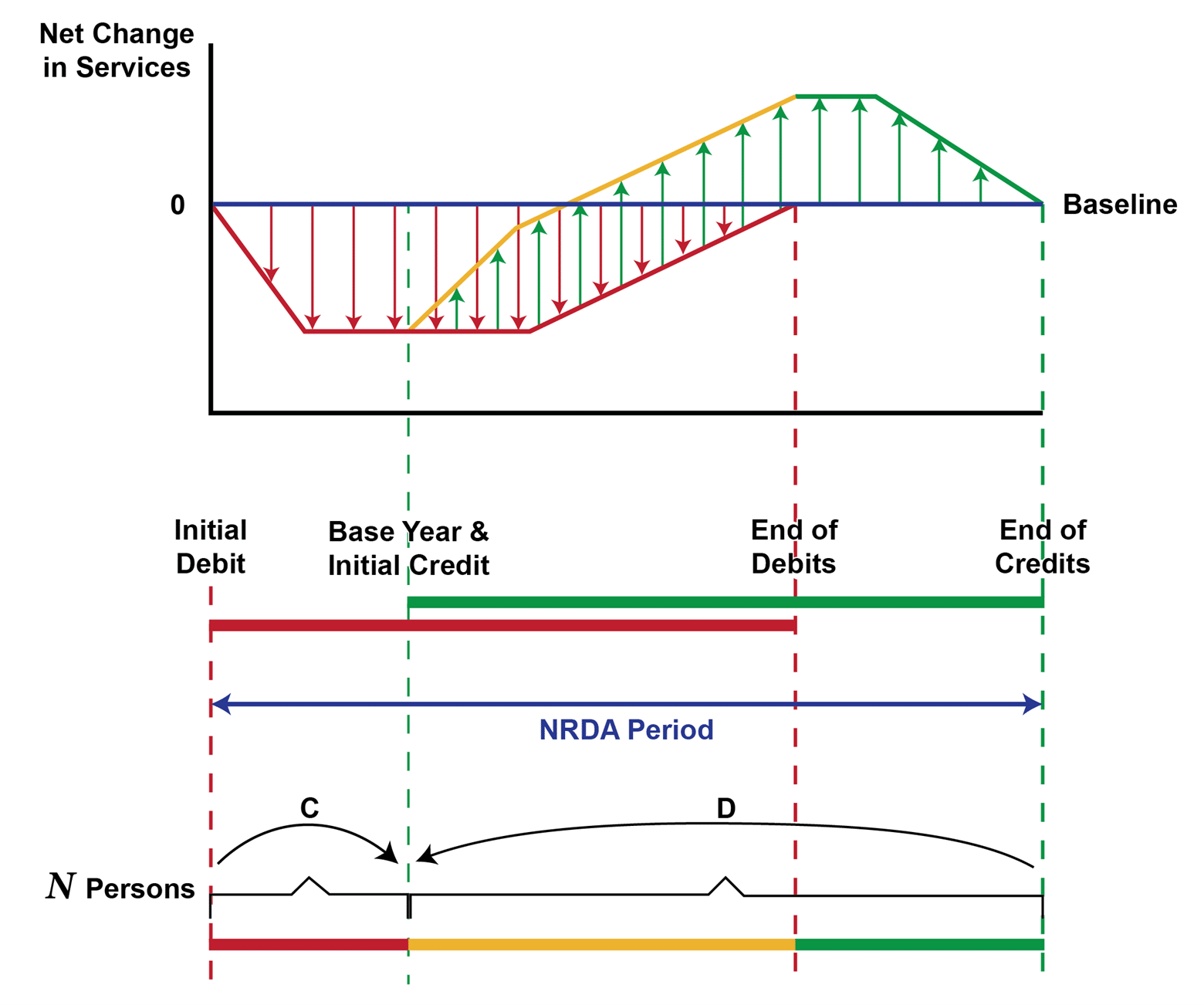
Discounting in Damage Assessments for Ecological Injuries: An Introduction to the Issues
Resource
June 06 2025U.S. Department of the Interior Proposes Revisions to NRDA Regulation Type A Rule
Resource
January 10 2024Using U.S. Natural Resource Damage Assessment to Understand the Environmental Consequences of the War in Ukraine
Publication
January 26 2023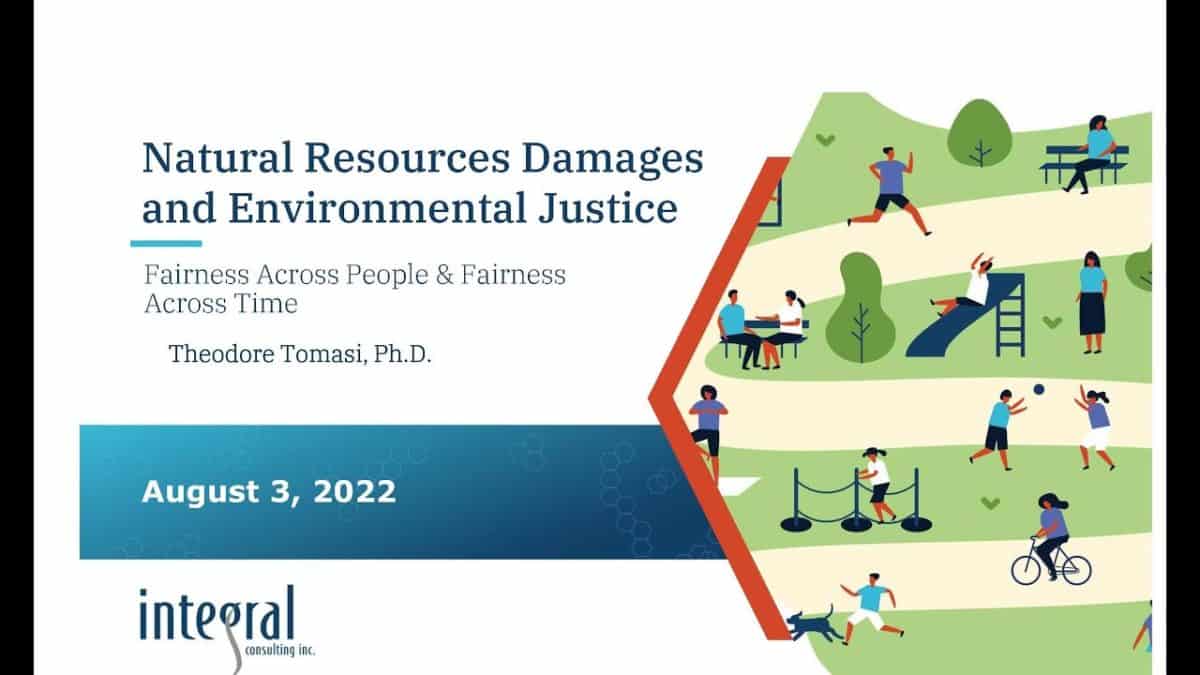
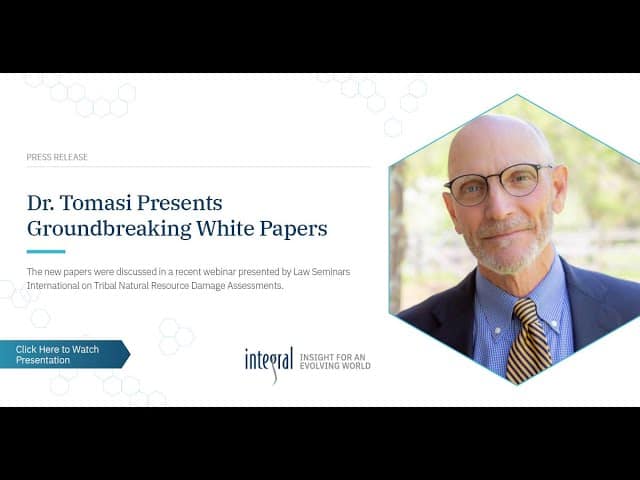

Marine Resource Economics: Ted Tomasi Coauthors Paper That Advances Methods for Valuing Recreation
Press Release
January 26 2022
Environmental Justice and NRDA: Two Papers by Dr. Ted Tomasi Break New Ground
Press Release
December 20 2021Considering Environmental Justice in Natural Resource Damage Assessment: Injury to Recreation Resources
White Paper
December 15 2021Considering Environmental Justice in Natural Resource Damage Assessment: Injury to Ecological Resources
White Paper
December 15 2021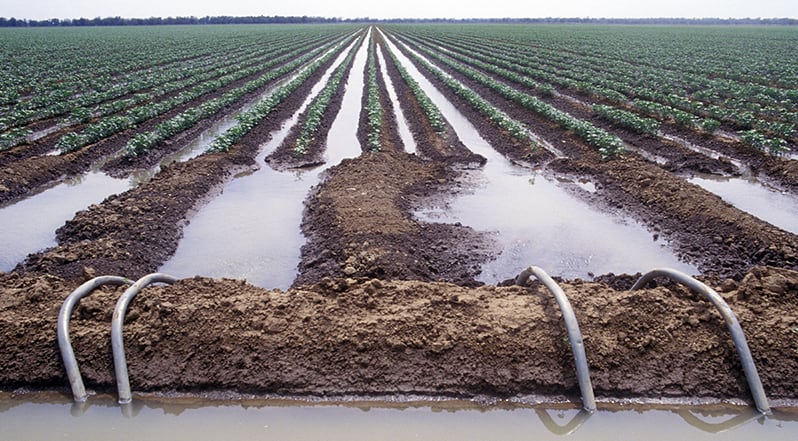

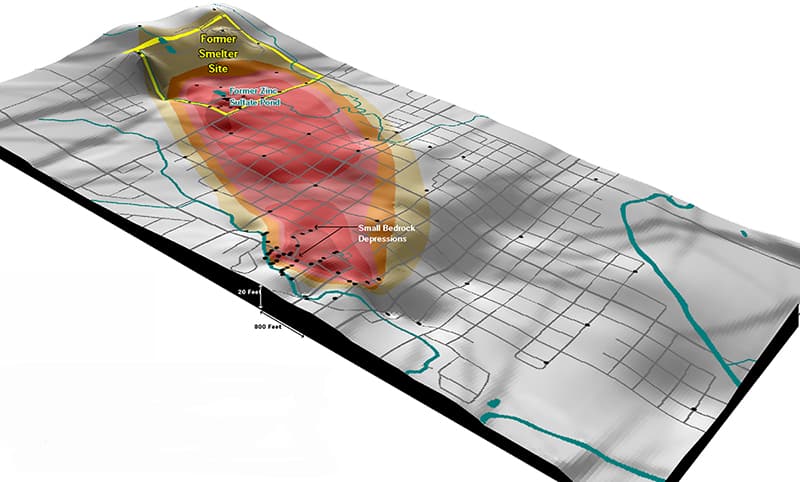
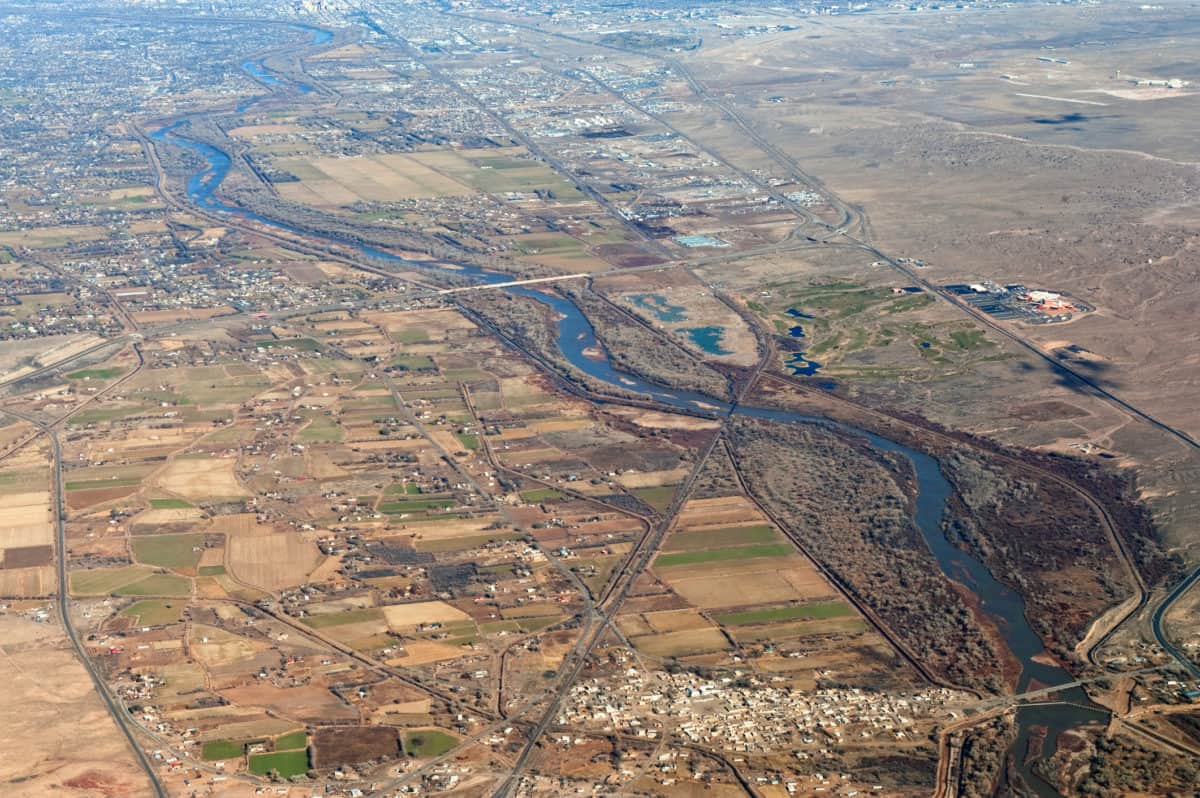
- NRDA For Contaminated Sites
- NRDA For Groundwater
- NRDA For Oil and Chemical Spills
- Resource Damage Assessments
- Climate Change
- Risk Assessment
- Environmental Decision-Making
- Recreation
- Land Valuation
- Environmental Economics
- Expert Testimony
NRDA For Contaminated Sites
NRDA For Groundwater
NRDA For Oil and Chemical Spills
Resource Damage Assessments
Climate Change
Risk Assessment
Environmental Decision-Making
Recreation
Land Valuation
Environmental Economics
Expert Testimony
- Rebuttal to the calculation of supposed Economic damages due to Ecosystem losses by Mr. Richard Cabera Vega September 8, 2008.
- Rebuttal to “Evaluation of Natural Resource Service Losses related to Oil Field Development in the concession” by Dr. Lawrence W. Barnthouse.
Tomasi, T., R.W. Cooper, and D. Anning. 2024. On the discount rate in environmental damage cases. Environmental Claims Journal 12:1–31. https://doi.org/10.1080/10406026.2024.2440574.
Anning, D., T. Tomasi, and J. Wollenberg. 2024. Supplemental environmental projects: Better than money and better still when incorporating justice. JDSupra. March 5. https://www.jdsupra.com/legalnews/supplemental-environmental-projects-8797342.
Tomasi, T. 2024. Considering environmental justice in resource restoration decision-making. Proceedings of the International Oil Spill Conference. 2024(1).
Stahl, R.G., J. Martin, T. Tomasi, and B.J. Goldsmith. 2023. If coordination of remediation and restoration under CERCLA is such a good idea, why is it not practiced more widely? Journal of Environmental Management 340:117964.
MacNair, D., G. Parsons, T. Tomasi, and H. Byrd. 2022. Trip equivalency for economic valuation in recreation demand models: Implications for compensatory restoration and benefits transfer. Marine Resource Economics 37(1):91–107.
Byrd, H., and T. Tomasi. 2021. Outdoor recreation damages from oil spills: Why current assessments are typically wrong and what can be done to fix them. Proceedings of the International Oil Spill Conference 2021(1):689229.
Wakefield, J., T. Tomasi, A. Morrow, C. Pfeifer, and H. Byrd. 2021. Habitat and resource equivalency analysis: 30 years of lessons learned and a look to the future. Proceedings of the International Oil Spill Conference 2021(1):800004.
MacNair, D., T. Tomasi, G. Parsons, and H. Byrd. 2019. Trip equivalency analysis. In: Natural Resource Damages: A Definitive Guide to Litigation and Resolving NRD Claims. B. Israel (ed). American Bar Association, Section on Environment, Energy, and Resources, Chicago, IL.
Myers, K., D. McNair, T. Tomasi and J. Schneider. 2017. Assessing the validity of stated preference data using follow-up questions. In: Contingent Valuation of Environmental Goods: A Comprehensive Critique. D. McFadden and K. Train (eds). Edward Elgar Publishers, Northampton, MA.
Adamowicz, W., D. Chapman, G. Mancini, W. Munns, A. Stirling and T. Tomasi. 2008. Valuation methods. In: Valuation of Ecological Resources: Integration of Ecology and Socioeconomics in Environmental Decision Making. R. Stahl, L. Kapustka, W. Munns, and R. Bruins (eds). SETAC Press, Boca Raton, FL.
Wakefield, J.R., T. Tomasi, R. Greer, and H. Byrd. 2003. Scaling primary and compensatory restoration of endangered species. Proceedings of the International Oil Spill Conference 2003(1):209–214.
Wakefield, J.R., T. Tomasi, H. Byrd, and R. Greer. 2003. A simulation model to predict spill-induced bird mortality using beached carcass data. Proceedings of the International Oil Spill Conference 2003(1):205–208.
Penn, A., and T. Tomasi. 2002. Calculating resource restoration for an oil discharge in Lake Barre, Louisiana. Environ. Manag. 29:691–702.
Parsons, G., M. Massey, and T. Tomasi. 1999. Familiar and favorite sites in a random utility model of beach recreation. Mar. Resour. Econ. 14(4):299–315.
Parsons, G., P. Jakus, and T. Tomasi. 1999. A comparison of welfare estimates from four models for linking seasonal recreational trips to multinomial logit models of site choice. J. Environ. Econ. Manag. 38(2):143–157.
Smith, R., and T. Tomasi. 1999. Multiple agents and agricultural non-point source water pollution control policies. Agricultural and Resource Economics Review 28(1):37–43.
Chen, K., T. Tomasi, and T. Roe. 1998. Political economy and pollution regulation: Instrument choice in a lobbying economy. In: Designing Institutions for Environmental and Resource Management. M. Kilgour and E. Loehman (eds). Edward Elgar Publishers, Northampton, MA.
Jones, C., T. Tomasi, and S. Fluke. 1996. Public and private claims in natural resource damage assessments. Harvard Environ. Law 20(1):111–164.
Boxall, P., W. Adamowicz, and T. Tomasi. 1996. A nonparametric test of the traditional travel cost model. Can. J. Agri. Econ. 44(2):183–193.
Tomasi, T. 1995. Quasi-option value. In: Handbook of Environmental Economics. D. Bromley (ed). Basil-Blackwell, Cambridge, UK.
Smith, R., and T. Tomasi. 1995. Transaction costs and agricultural nonpoint-source water pollution control policies. J. Agri. Resour. Econ. 20(2):277–290.
Feather, P., D. Hellerstein, and T. Tomasi. 1995. A discrete-count model of recreation demand. J. Environ. Econ. Manag. 29(2):214–227.
Dosi, C., and T. Tomasi (eds). 1994. Nonpoint Source Pollution Regulation: Issues and Analysis. Kluwer Academic Publishers, Boston, MA.
Tomasi, T., K. Segerson, and J. Braden. 1994. Issues in the Design of Incentive Schemes for Nonpoint Source Pollution Control. In: Nonpoint Source Pollution Regulation: Issues and Analysis. C. Dosi and T. Graham-Tomasi (eds). Kluwer Academic Publishers, Boston, MA.
Lupi, F., H. Chen, T. Tomasi, and J. Hoehn. 1994. Site-specific qualitative variables in random utility travel cost models. Am. J. Agr. Econ. 76:1249–1250.
Adamowicz, W., J. Fletcher, and T. Tomasi. 1994. Functional form and the statistical properties of welfare measures: Reply. Am. J. Agr. Econ. 76(4):958–59.
Tsur, Y., and T. Graham-Tomasi. 1992. Buffer values of groundwater with stochastic surface water supply. J. Environ. Econ. Manag. 21(3):201–224.
Graham-Tomasi, T. 1991. Sustainability: Concepts and implications for agricultural research policy. In: Agricultural Research Policy: International Quantitative Perspectives. P.G. Pardey, J. Roseboom, and J.R. Anderson (eds). Cambridge University Press, Cambridge, UK.
Coggins, J., T. Graham-Tomasi, and T. Roe. 1991. Existence of equilibrium in lobbying economies. Int. Econ. Rev. 32(3):533–550.
Adamowicz, W., and T. Graham-Tomasi. 1991. Revealed preference tests of techniques for nonmarket goods valuation. J. Environ. Econ. Manag. 20(1):29–45.
Graham-Tomasi, T. and R. Myers. 1990. Supply-side option value: Further discussion. Land Econ. 66(4):205–207.
Graham-Tomasi, T., W. Adamowicz, and J. Fletcher. 1990. Errors of truncation in approximations to expected consumer surplus. Land Econ. 66(1):50–55.
Fletcher, J., W. Adamowicz, and T. Graham-Tomasi. 1990. The travel cost model of recreation demand: Theoretical and empirical issues. Leisure Sci. 12(1):119–147. (Senior authorship unassigned)
Adamowicz, W., T. Graham-Tomasi, and J. Fletcher. 1989. Inequality-constrained estimation of consumer surplus. Can. J. Agri. Econ. 37(3):407–420. (Senior authorship unassigned)
Adamowicz, W., J. Fletcher, and T. Graham-Tomasi. 1989. Functional form and the statistical properties of welfare measures. Am. J. Agr. Econ. 71(2):414–21. (Senior authorship unassigned)
Graham-Tomasi, T. 1988. A theoretical and empirical approach to the value of information in risky markets: A comment. Rev. Econ. Stat. 70(3):543–545.
Ramirez, J., W. Adamowicz, K.W. Easter, and T. Graham-Tomasi. 1988. An ex-post analysis of flood-control: Benefit-cost analysis and the value of information. Water Resour. Res. 24(8):1397–1405.
Roe, T., and T. Graham-Tomasi. 1986. Yield risk in a dynamic model of the agricultural household. In: Agricultural Household Models: Issues, Analysis and Policy. I. Singh, et al. (eds). Johns Hopkins University Press, Baltimore, MD. (Refereed research monograph)
Graham-Tomasi, T., C.F. Runge, and W. Hyde. 1986. Foresight and expectations in models of natural resource markets. Land Econ. 62(3):234–249.
Graham-Tomasi, T. 1984. The value of information in risky markets: Discussion. Am. J. Agr. Econ. 66(5):724–725.
University of Michigan: Natural Resource Economics; Forest Management; Forest Economics (graduate and undergraduate levels).
University of Minnesota: Natural Resource Economics; Environmental Economics; Land and Institutional Economics (Ph.D. level); Natural Resource Economics (M.A. level); Intermediate Microeconomic Theory (undergraduate level).
Michigan State University: Dynamic Economic Models; Natural Resource Economics; Applied Welfare Economics (Ph.D. level).
University of Delaware: Environmental Economics; Microeconomic Theory (undergraduate level).

